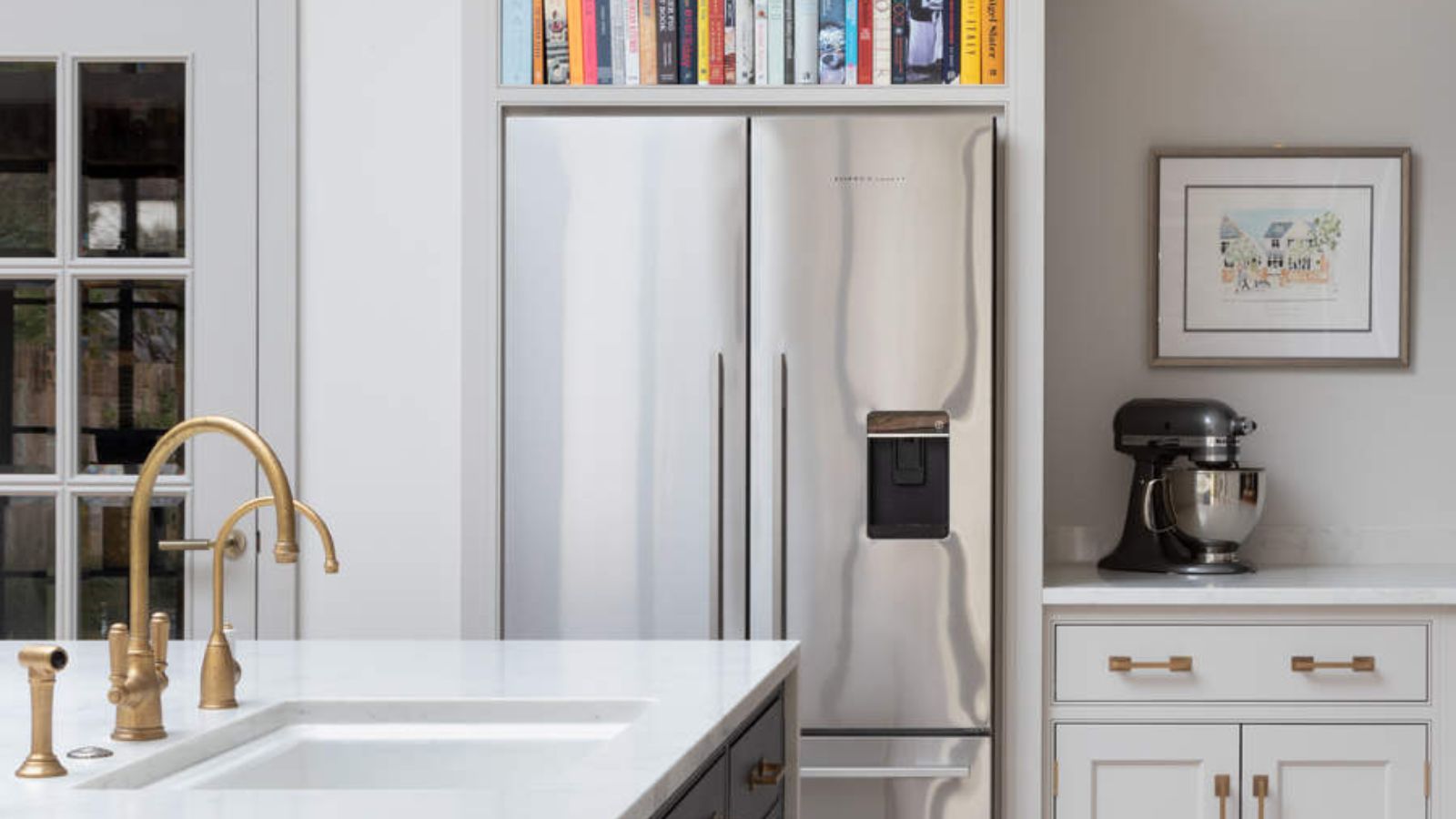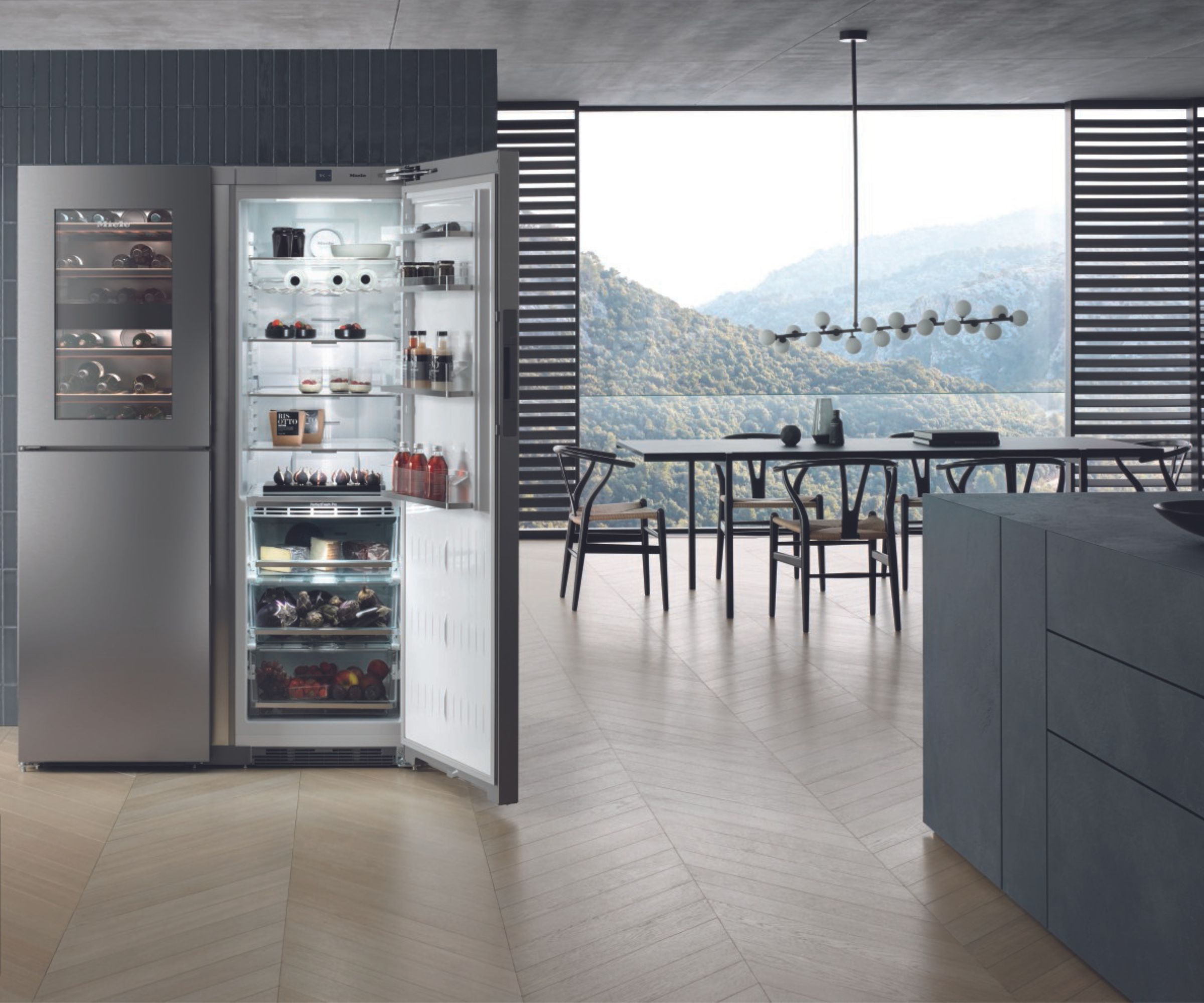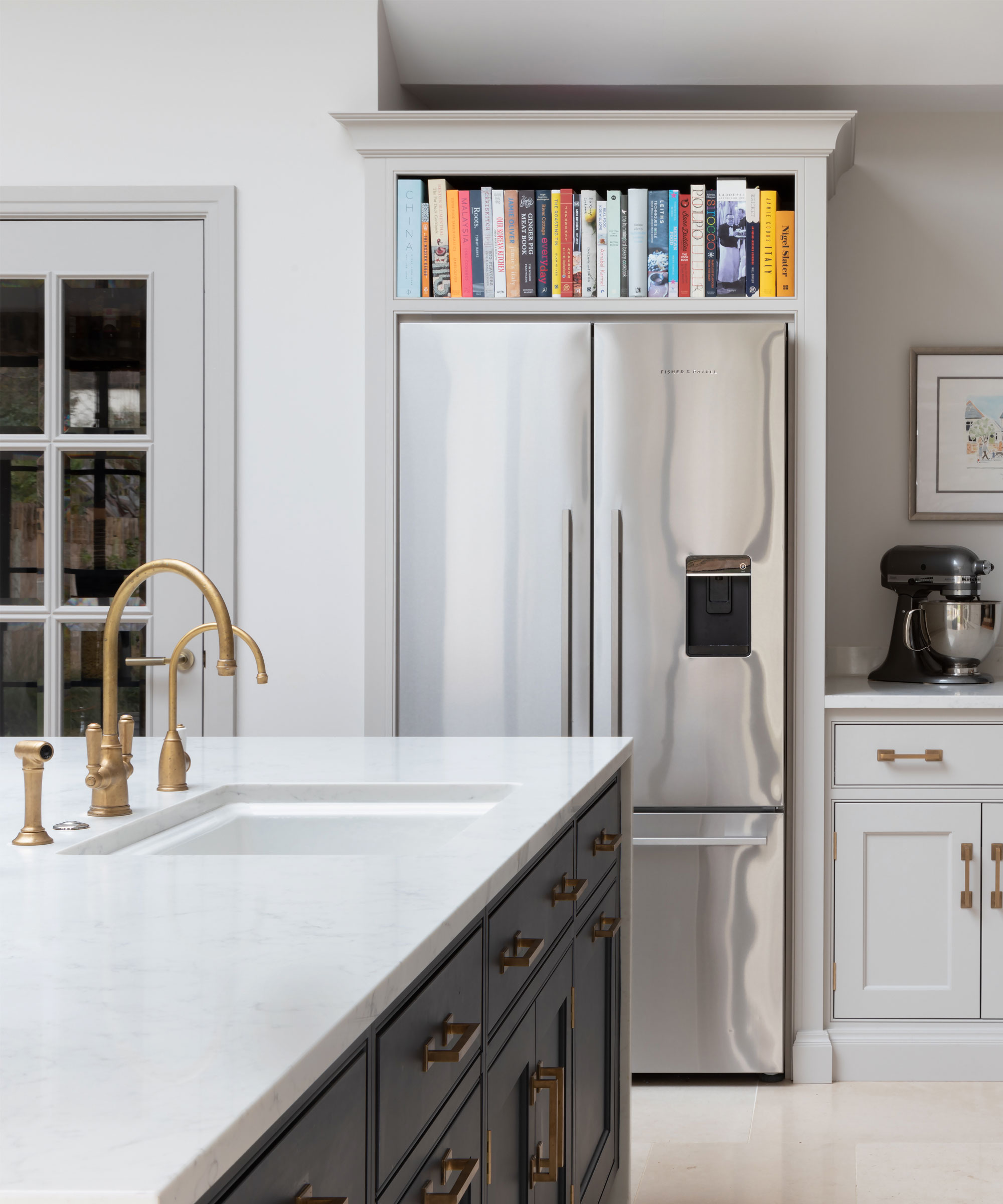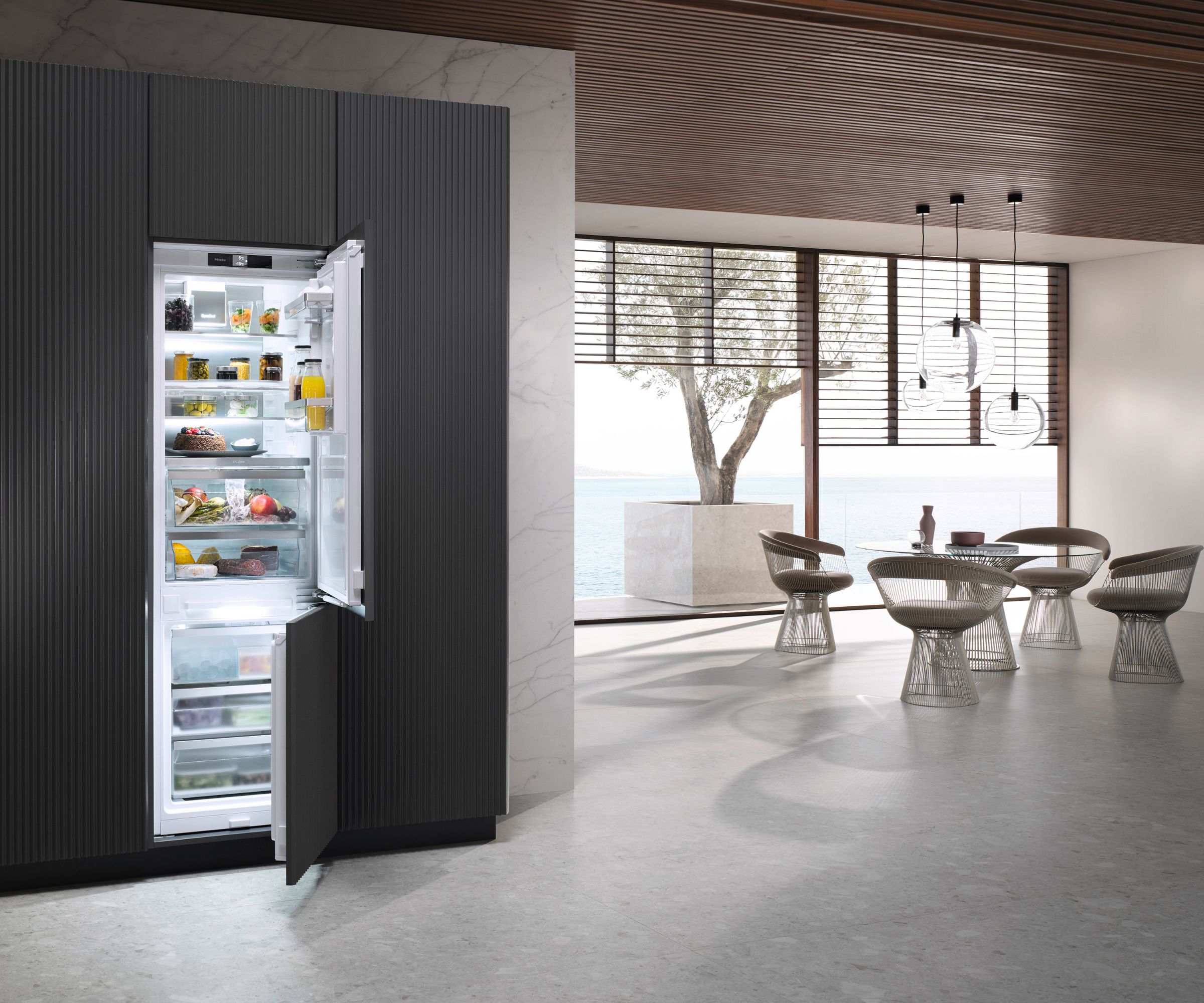How cold should a refrigerator be? Our experts have the answer
Choosing the right temperature for your fridge is about more than keeping food fresh – keeping your fridge at this temperature will save you money as well


Design expertise in your inbox – from inspiring decorating ideas and beautiful celebrity homes to practical gardening advice and shopping round-ups.
You are now subscribed
Your newsletter sign-up was successful
Want to add more newsletters?

Twice a week
Homes&Gardens
The ultimate interior design resource from the world's leading experts - discover inspiring decorating ideas, color scheming know-how, garden inspiration and shopping expertise.

Once a week
In The Loop from Next In Design
Members of the Next in Design Circle will receive In the Loop, our weekly email filled with trade news, names to know and spotlight moments. Together we’re building a brighter design future.

Twice a week
Cucina
Whether you’re passionate about hosting exquisite dinners, experimenting with culinary trends, or perfecting your kitchen's design with timeless elegance and innovative functionality, this newsletter is here to inspire
Ensuring your refrigerator is at the correct temperature is crucial for food safety and preservation, as well as energy efficiency.
Even with the best refrigerator, the quality of your food and the energy efficiency of this appliance hinges on proper temperature settings.
In this guide, our experts explain the ideal refrigerator temperatures for various compartments – and according to the different food types – to strike the right balance between the longevity of your groceries and the efficiency of your appliance. Plus, they share their top tips to maintain this temperature.
How cold should a refrigerator be

'The ideal temperature for a refrigerator is between 35°F and 38°F (1.7°C to 3.3°C),' advises Steven Perez, founder of Kitchen and Range Hood.
Remember, the different levels of your fridge will have different temperatures to cater to the varied storage requirements of different types of food. Here's a guide:
- Top shelf (37°F – 38°F): Store leftovers, beverages, and condiments.
- Middle shelves (36°F – 38°F): Ideal for dairy products, eggs, and cooked meats.
- Bottom shelf (35°F – 37°F) The coldest zone, perfect for raw meat, poultry, and fish.
- Door shelves: This is the warmest part of the fridge, so it is best to store items with a shorter shelf life here, such as sauces and jams. Sodas and bottled water can also be placed here.
Why it is important to maintain this temperature

'This range is cold enough to prevent bacterial growth and keep food fresh, yet not so cold that it causes items to freeze unintentionally,' explains Steven Perez.
Additionally, this is the ideal temperature to keep your food safe and prevent it from getting spoiled. The U.S. Food and Drug Administration (FDA) recommends that the temperature should be at or below 40°F (4°C). The 35°F and 38°F range is therefore the perfect middle ground.
Design expertise in your inbox – from inspiring decorating ideas and beautiful celebrity homes to practical gardening advice and shopping round-ups.
Tips to maintain the desired temperature

1. 'Keep the fridge door closed: Every time you open the fridge, cold air escapes, forcing the compressor to work harder,' explains Alex David, Head of eCommerce at Homes & Gardens. 'Minimize door-opening sessions for optimal efficiency'. This will also help you avoid needing to defrost your fridge to curb ice build-up.
2. Thaw food safely: Never thaw frozen food at room temperature. Use the refrigerator, cold running water, or the microwave's defrost setting.
3. Avoid overcrowding: Air circulation is essential for maintaining consistent temperatures.
4. 'Keep your refrigerator fully stocked: A full refrigerator can handle temperature fluctuations better, so if it's less full, consider storing water containers to help stabilize the temperature,' recommends Steven Perez.
4. Location is key: If you're wondering where a refrigerator should be placed, the answer is away from heat sources, such as the over or heating systems as well as direct sunlight.
5. Avoid over-enclosure: Blocking vents can lead to uneven cooling and higher temperatures in certain areas. You should ensure proper air circulation in the back of the refrigerator to prevent overheating components.
6. Check the door seal: Make sure the seals on your refrigerator doors are clean
and tight. Loose or dirty seals can let in warm air, making the refrigerator work harder, causing temperatures to rise.
'If you notice your refrigerator struggling to maintain the desired temperature, it could signify a need for maintenance or possibly a replacement,' says Steven Perez.

As Head of eCommerce, Alex David makes sure our readers find the right information to help them make the best purchase. After graduating from the University of Cambridge, Alex learned the tricks of the trade at the Good Housekeeping Institute, testing everything from fridges and washing machines to dog toys and exercise bikes.
FAQs
How can you get an accurate reading of a refrigerator's temperature?
It’s important to note that not all refrigerator temperature gauges are accurate. You may have your refrigerator set to 38°F, but it’s actually keeping temperatures around 33°F or even 42°F.
'To get an an accurate reading, you can place a thermometer or a refrigerator temperature gauge on the middle shelf,' suggests Alex David, Head of eCommerce at Homes & Gardens. The SensorPush HT1 wireless digital thermometer from Amazonis a good choice, or for a more affordable option we recommend the AEVETE digital refrigerator thermometer, from Amazon.
How cold should a freezer be?
0°F (-18°C) is the ideal temperature for a freezer. Food will remain frozen solid at this temperature, preventing ice crystals from forming that can compromise its texture and flavor.
'Built-in freezer dials are often inaccurate,' warns Alex David. 'So you should periodically verify a freezer's temperature with an independent thermometer. This will ensure your freezer is running at optimal performance.'
Organizing a refrigerator can help you keep track of perishable foods so you can use them before they expire. You can use this NIIMBOT label maker machine from Amazon to label shelves and items in containers to track when they should be used. This not only minimizes food waste, but also reduces the workload on your refrigerator, helping to cut your energy bills.

Lola Houlton is a news writer for Homes & Gardens. She has been writing content for Future PLC for the past six years, in particular Homes & Gardens, Real Homes and GardeningEtc. She writes on a broad range of subjects, including practical household advice, recipe articles, and product reviews, working closely with experts in their fields to cover everything from heating to home organization through to house plants. Lola is a graduate, who completed her degree in Psychology at the University of Sussex. She has also spent some time working at the BBC.